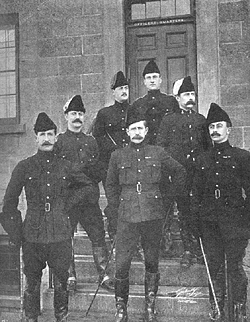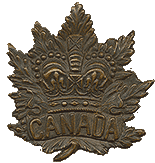Canadian Personalities
Lieutenant-Colonel Thomas D.B. Evans (1860-1908)
Commanding Officer, 1st Battalion, Canadian Mounted Rifles

At the start of the South African War in October 1899, Evans had just returned to his post in Winnipeg from the Yukon, where he had commanded the military force that kept order there during the gold rush. He was a veteran of the Northwest Campaign of 1885, where he served with the militia infantry. In 1888, he joined the Permanent Force infantry, transferring to the cavalry in 1891.
He went to South Africa as second-in-command of the 1st Battalion, Canadian Mounted Rifles (later renamed Royal Canadian Dragoons). Shortly afterwards he was appointed in acting command of the 2nd Battalion, Canadian Mounted Rifles, when its commanding officer, Lieutenant-Colonel L.W. Herchmer, suffered health problems. In August 1900, Evans was confirmed in command of the unit, renamed the 1st Battalion, Canadian Mounted Rifles. Under his leadership the Canadian Mounted Rifles carried out some very successful actions, including the seizure of a key hill at Leliefontein on 7 November 1900 that prevented the Boers from trapping a British force.
In 1902, he returned to South Africa in command of the six-squadron-strong 2nd Regiment, Canadian Mounted Rifles. Once again his command was very creditable, notably in the action at Harts River on 31 March 1902. Some may have underestimated Evans because of his open and very friendly manner, but he was an extremely effective commanding officer. In the view of one modern historian, Evans was the "outstanding Canadian soldier of his generation."
